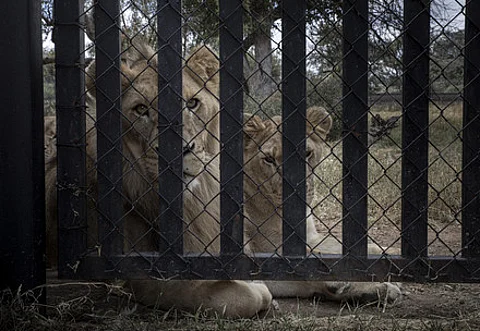

Thailand has seen a staggering increase in the number of captive lions within its borders, with the population more than tripling from just over 130 in 2018 to more than 440 by 2024. The sharp rise, revealed in a new peer-reviewed study published in Discover Conservation, has prompted urgent calls for global intervention to curb the exploitation of big cats.
Animal welfare organisation FOUR PAWS has condemned the trend, warning that the growth is not a conservation success but a reflection of commercial breeding practices driven by entertainment demands, the exotic pet trade and social media trends.
“This is not progress – it’s exploitation,” said Vanessa Amoroso, Navigator for Animals in Entertainment and Work at FOUR PAWS.
“Lions are being bred and sold like commodities, suffering from inbreeding and denied the chance to live in the wild.”
The study highlights a worrying surge in breeding activity. The number of lion-holding facilities in Thailand has increased from 31 in 2018 to 82 in 2024, with some holding more than 50 animals each. Private zoos and breeding farms now house over 90 per cent of the nation’s captive lions.
One of the most concerning findings is the rise of white lion breeding. Nearly half of the estimated 101 cubs born annually are white lions – animals bred for their rare appearance, which results from a recessive genetic mutation. These lions, despite their appeal, often suffer from severe health conditions due to inbreeding.
White lion cubs can fetch up to $7,500 each on the market, supporting a cub-selling industry estimated to be worth nearly $1 million annually.
Lions were classified as protected non-native wildlife under Thai law in 2022, but the legislation has done little to curb breeding activity. Additionally, reports of lions being transferred across borders without clear justification have raised concerns about their potential use in illegal wildlife trade.
Amoroso likened the situation in Thailand to the now-infamous lion breeding crisis in South Africa, where the government has since committed to phasing out the practice.
“The same patterns we’ve been fighting elsewhere are now showing up in Southeast Asia,” she said. “Without strong international cooperation, this could become a global conservation disaster.”
FOUR PAWS is urging the Thai government to strengthen and enforce laws that prohibit commercial breeding and the use of lions for entertainment or trade. The organisation is also calling on the international community to take coordinated action to dismantle the global trade in big cats and their parts.
“The world cannot afford to ignore this. If action isn't taken now, Thailand risks becoming the next cautionary tale,” Amoroso warned.